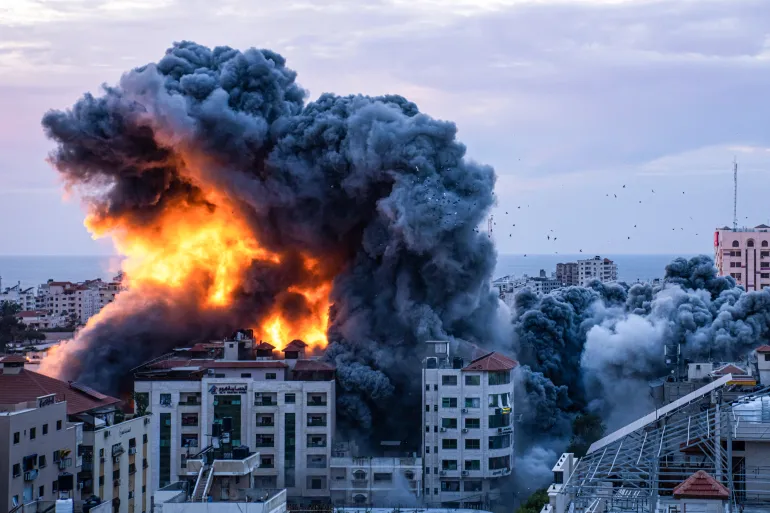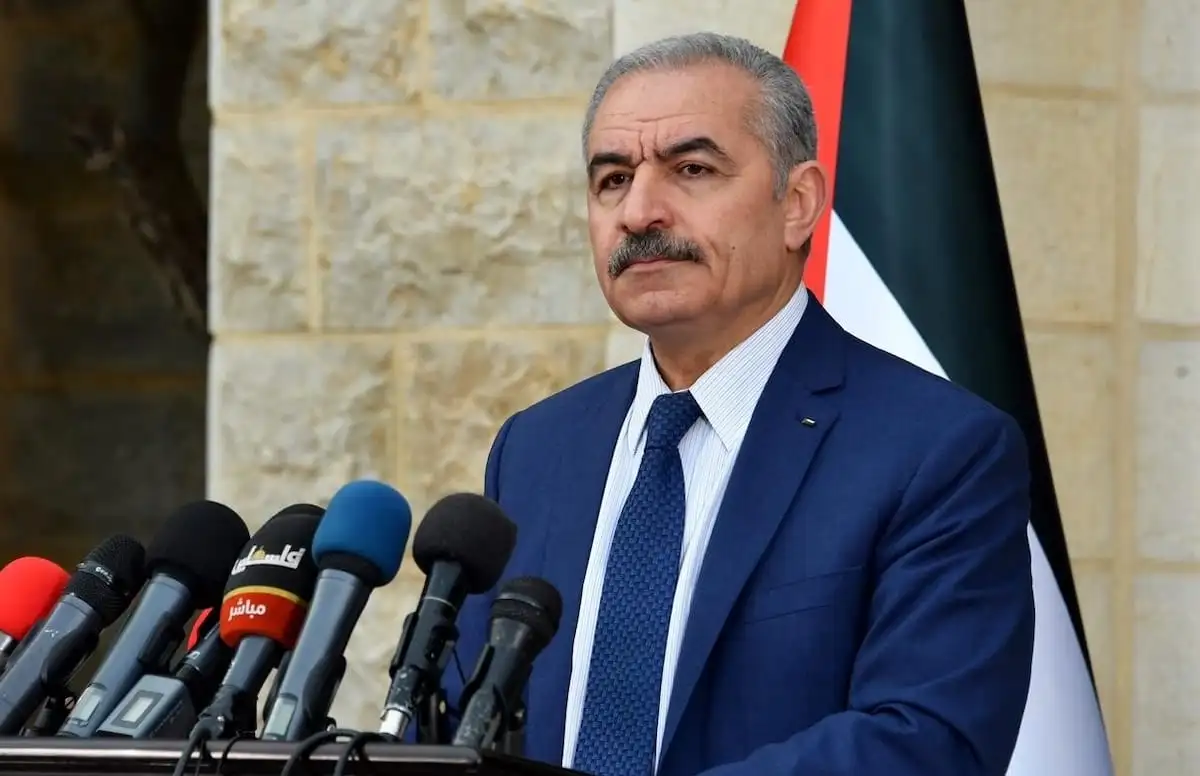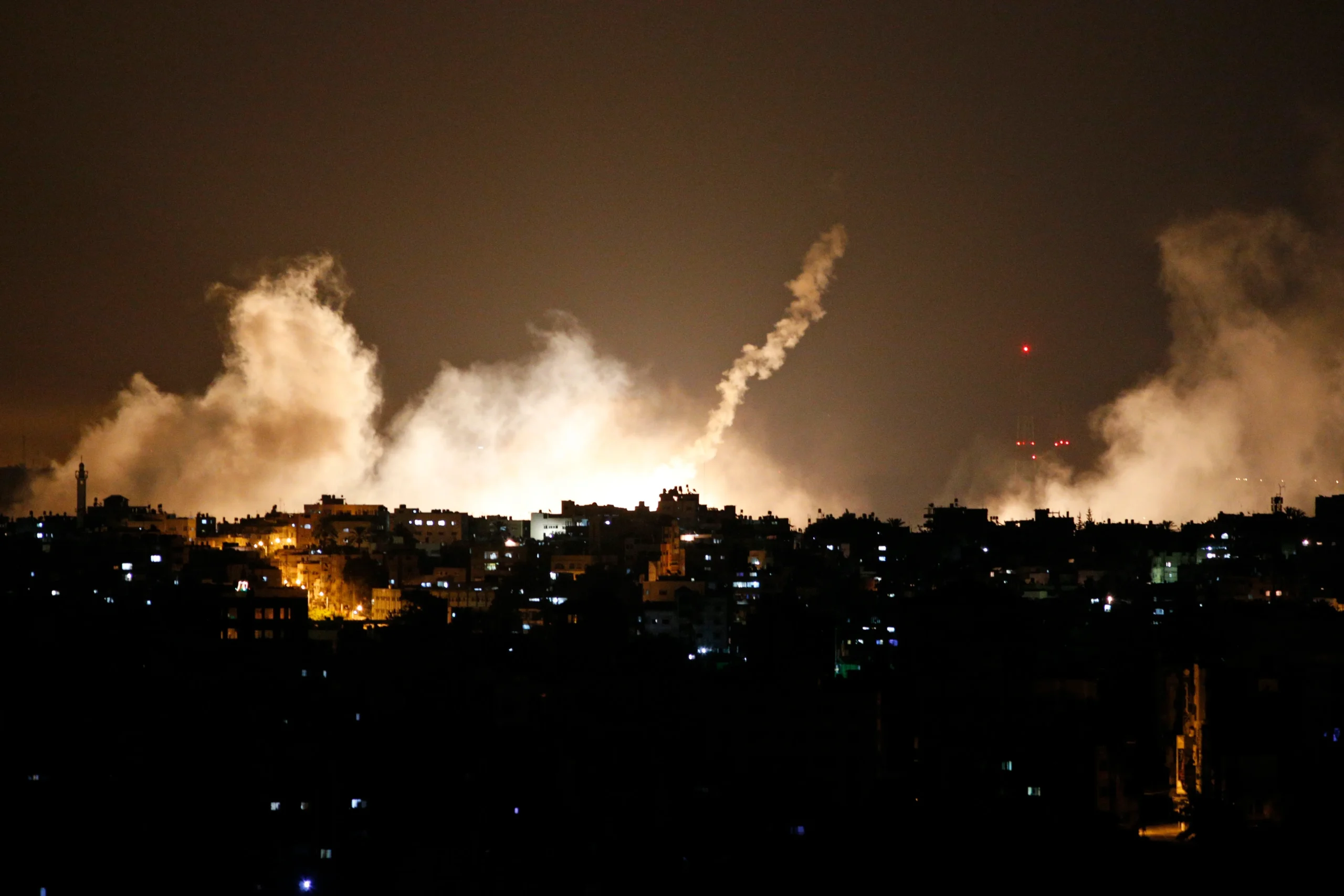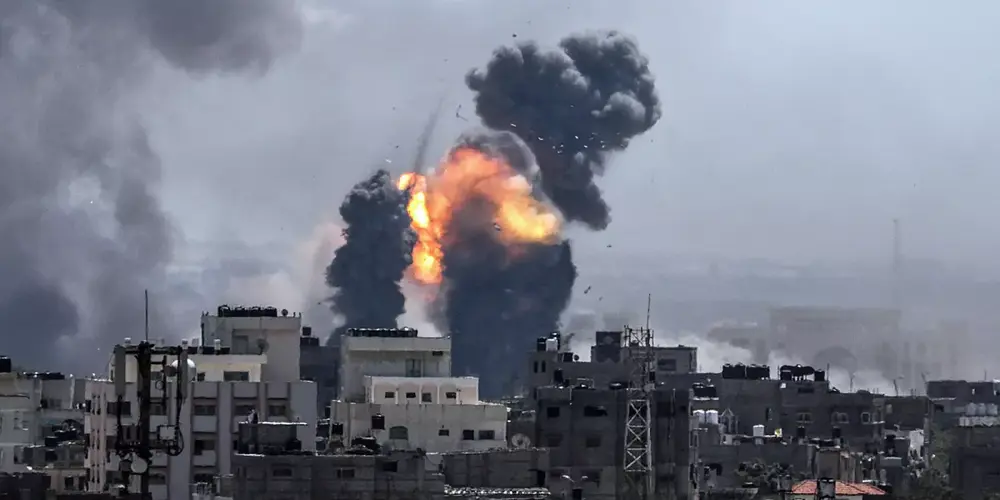The Israel-Hamas Conflict continues to escalate rapidly, with the death toll nearing 1,000 and growing concerns about the safety of Americans caught in the crossfire. As this crisis unfolds, international reactions and implications are coming into focus.
Deadly Escalation in Israel-Hamas Conflict
The conflict between Israel-Hamas, Palestinian terrorists has entered its second day, with no signs of abating. The Israeli Security Cabinet formally declared war, marking a significant escalation in hostilities.

Fire and smoke rise above buildings during an Israeli airstrike in Gaza City early Sunday. The strike was in retaliation for a large-scale surprise attack by Hamas on Saturday that saw terrorists break out of the blockaded Gaza Strip and into nearby Israeli towns.
Reports from ZAKA, a volunteer group that handles human remains after terror attacks, suggest that over 600 Israelis have lost their lives since Hamas terrorists launched their assault on Israeli towns and army bases.
Tragically, some Americans are among the casualties, and others have been taken hostage. On the Palestinian side, more than 300 fighters and civilians have been killed by Israeli counterattacks in Gaza, and thousands are reportedly wounded.
One of the most concerning developments is the barrage of rockets fired from Gaza into southern and central Israel, including heavily populated areas like Tel Aviv and Jerusalem. Additionally, Hamas terrorists have infiltrated Israeli areas near the Gaza border, resulting in the killing and injuring of civilians and Israeli security forces, along with the taking of hostages.
U.S. Involvement and Concerns for Americans
Secretary of State Antony Blinken has been actively engaged in addressing the crisis. Speaking on Sunday talk shows, he expressed the U.S. government’s commitment to verifying reports of American casualties and hostages. Blinken emphasized the priority of ensuring the safety of any Americans affected by the Israel-Hamas Conflict.
Biden Secretary of State Antony Blinken on the attacks in Israel: "We have reports that several Americans were killed … There are reports of missing Americans." pic.twitter.com/4eIMFkDvTG
— RNC Research (@RNCResearch) October 8, 2023
“We have reports, we need to verify them”, Blinken said on NBC’s Meet the Press. “Any American anywhere who is being detained or held hostage, that is going to be a priority for this government, for this administration, and for me”.
Blame and Responsibility
The Palestinian Prime Minister, Mohammad Shtayyeh, has squarely laid the blame for the war on Israel’s shoulders. He accused Israel of “creating a climate of hatred, violence, incitement, and violating international law”.

Palestinian Prime Minister, Mohammad Shtayyeh
Shtayyeh argued that international support for Israel encourages the Israeli government and military to commit more crimes against Palestinians in Gaza.
Shtayyeh’s statements highlight the deep-seated animosity and blame game that characterizes this enduring Israel-Hamas Conflict. He also pointed to the ongoing siege of Gaza and the violation of sacred sites as contributing factors to the crisis.
Deadly Counterstrikes and Tragic Losses
The violence has led to deadly counterstrikes from Israel. Overnight, Israel conducted numerous airstrikes in the southern Gaza town of Rafah, resulting in civilian casualties. In one particularly heartbreaking incident, an airstrike hit three homes in the Shaboura refugee camp, losing 19 family members. Surviving relatives and neighbors mourned the victims and held prayers before laying them to rest.

Smoke rises following Israeli airstrikes on a building in Gaza City
The Israeli Defense Forces (IDF) reported that they had targeted two “operational situation rooms” inside mosques used by Hamas in Gaza. They also struck Hamas’ intelligence headquarters, a military compound used by Hamas’ aerial forces, and an aerial weapons production site. The IDF claimed to have eliminated at least 400 Palestinian terrorists in Israel and during strikes in Gaza.
On the Palestinian side, the Gaza health ministry reported 370 deaths and over 2,200 injuries. The situation is dire, with appeals for blood donations to help the wounded.
International Reactions and Support for Israel
Israeli Prime Minister Benjamin Netanyahu has been in contact with various world leaders. He reported that German Chancellor Olaf Schulz, Ukrainian President Volodymyr Zelensky, Italian Prime Minister Giorgio Maloney, and British Prime Minister Rishi Sonak expressed “unqualified support” for Israel’s right to defend itself. Chancellor Scholz stated that Germany stands “unwaveringly on Israel’s side”.
President Joe Biden condemned the violence, calling it an “appalling assault”. He emphasized that U.S. support for Israel remains “rock solid and unwavering”. Biden warned against taking advantage of the situation, reinforcing that terrorism is never justified and that Israel has the right to defend itself.
Economic Implications
The Israel-Hamas Conflict could have economic repercussions beyond the immediate humanitarian crisis. Oil prices may spike as markets react to the outbreak of violence in a region known for its oil production. However, experts anticipate a long-term impact on oil and gas prices only if the Israel-Hamas Conflict spreads to other major oil-producing countries. Currently, Israel and Palestine are not significant oil producers.
Impact on Travel
The Israel-Hamas Conflict has also affected air travel, with major American airlines such as Delta, United, and American either limiting or canceling flights to and from Ben Gurion International Airport near Tel Aviv. The Federal Aviation Administration (FAA) has cautioned pilots flying in Israeli airspace to exercise caution. United Airlines suspended flights to Tel Aviv until conditions allow for their resumption.
Other international airlines, including Air France, Lufthansa, Emirates, Ryanair, and Aegean Airlines, have also canceled flights to the region. While monitoring the situation closely, Swiss Airlines has canceled all flights to and from Ben Gurion International Airport until Monday.
Historical Context on Israel-Hamas Conflict
The roots of this Israel-Hamas Conflict stretch back to pre-biblical times, with Israeli Jews and Palestinian Arabs tracing their history, culture, and identity to the Palestinian territories and the ancient city of Jerusalem.
The region’s complex history and contested territories have fueled decades of tension and violence.
The British Mandate in 1920 and the Balfour Declaration in 1917 played pivotal roles in shaping the Israel-Hamas conflict’s trajectory. Over the years, borders have shifted, but the fundamental disputes over land, identity, and rights persist.
As the Israel-Hamas Conflict rages on, the world watches with concern, condemnation, and calls for peace. The human toll is devastating, and the impact on the broader region remains uncertain.
International leaders face the formidable challenge of resolving a crisis deeply rooted in history and grievances.
In Conclusion, Israel-Hamas Conflict shows no signs of abating, with the death toll rising and concerns about Americans caught in the crossfire. International leaders are responding with expressions of support for Israel’s right to defend itself and call for de-escalation. The Israel-Hamas conflict’s economic and travel implications add further complexity to a multifaceted crisis. Amid this turmoil, the world anxiously awaits developments that could shape the region’s future for years to come.




